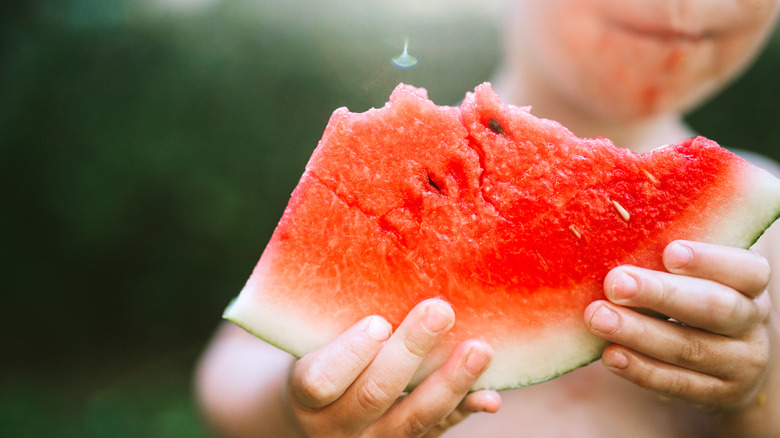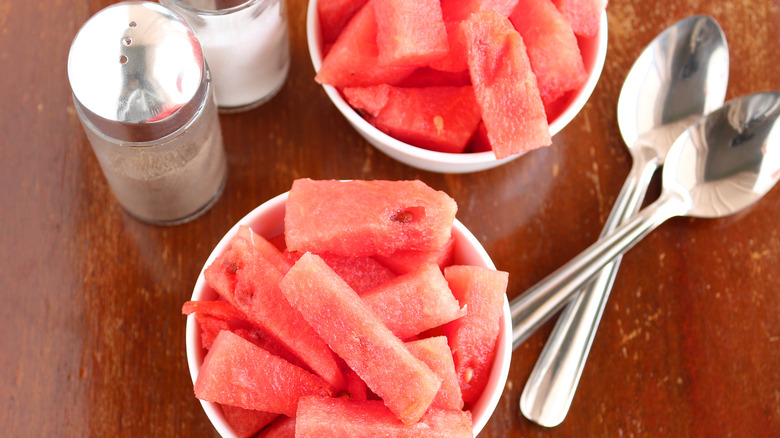Make Your Watermelon Taste Far Sweeter With One Extra Ingredient
No matter how you slice it, there is no escaping the sweet charm of a watermelon. And though it isn't the official fruit of summer, as there is no committee on designating official seasonal fruits, it is undoubtedly one of the best for serving up on long, hot days. The large, pink (and sometimes yellow) melons weigh around 20 pounds and have a crisp texture and high water content that is incredibly refreshing after a long day of swimming, tennis, or lounging in the sun. But sometimes that big, juicy fruit can fall flat. Whether you've picked your fruit too soon or failed to pick it at peak ripeness, there are many reasons why your watermelon might not be as sweet as you'd like. Luckily, this doesn't mean you're stuck with a subpar melon. In fact, there is one simple ingredient that can make any watermelon mouthwateringly juicy and sweet: salt.
Salt can help to sweeten up your watermelon. This is no new hack, as many Southerners have made a tradition of salting their watermelons (and beer). However, salting watermelon isn't universal knowledge, and it may seem like contradictory advice. Salt and sweet seem to be opposing flavors, but salt is actually a fantastic ingredient for amplifying other flavors, both by increasing saliva and impacting how your brain perceives taste. So grab a shaker of salt next time you cut yourself a wedge of watermelon.
The science of sweet
Now, let's dig into the science of salt (and sweet) a bit deeper. It may seem counterintuitive to sweeten food with salt, however, that magical mineral has a lot more up its sleeve than saltiness, it is actually key to unlocking a number of flavors. Of course, adding salt to sweets isn't entirely new. Salted caramel, for example, is a classic confectionary treat. And salting your hot chocolate can bring out a surprising depth of flavor. So why exactly is salting up your sweets such a genius idea?
The answer lies on your tongue, and within your tastebuds to be exact. According to a study by Okayama University, chloride, a part of salt's chemical makeup, can signal sweet taste receptors in small amounts. Chloride is also believed to interact with a certain taste receptor often associated with sweet foods. This then sends signals to your brain that react as though you've eaten something sweet.
Regardless of the complex science behind this hack, it is simple enough to try for yourself. Just grab a shaker of salt, sit in the sand (if you so please), and give it a shake over a ripe, pink wedge of watermelon. If not for the sweet kick, then for the beneficial electrolytes you'll be needing all summer long.

